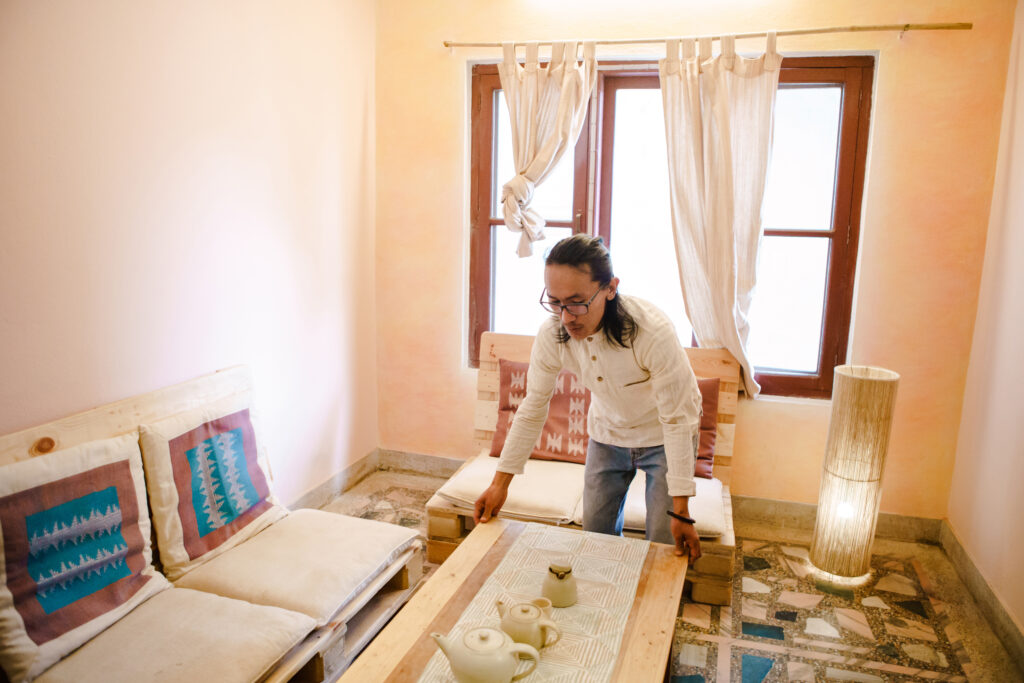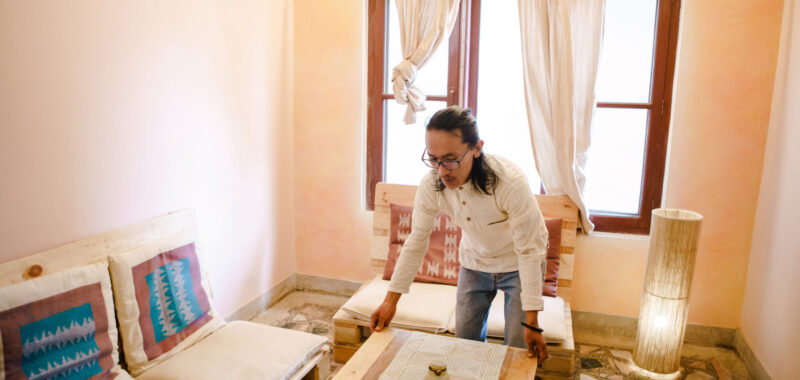
Skift Take
Turf wars between individual and professional hosts on Airbnb have been long-standing. Chesky isn’t making friends with professional hosts when touting Airbnb’s co-hosting network as a way to replace them.
Airbnb CEO Brian Chesky told analysts during the third-quarter earnings call Thursday that 20,000 people have expressed interest in becoming co-hosts since Airbnb launched an enhanced network in mid-October.
They would supplement 10,000 current co-hosts in 10 countries and help hosts who may not have the time to handle some tasks themselves, such as managing listings and cleaning services.
“The best part of all was this would be an alternative to some of the third-party property management companies,” Chesky said.
That won’t do much to ease any concerns from property managers such as Vacasa, Sonder, Vtrips, Awaze, Evolve, and many others, all of which use Airbnb to varying extents to attract bookings. One property manager told Skift they took exception to Airbnb stating last month that co-hosts get higher guest ratings than professional property managers, a point that Chesky emphasized again on Thursday.
“The average five-star rating for co-hosts on Airbnb is significantly higher than the average rating of a third-party property manager,” he said.
Airbnb is continuing to pursue a supply strategy of emphasizing listing quality over adding supply in a wreckless manner â it has removed 300,000 listings since last year. But Chesky said the co-hosting network could unlock “millions” of new listings in coming years because it will make it easier for people to earn extra money by renting out their homes on Airbnb.
Airbnb said it has more than 8 million active listings, but starting this year, given the quality push, has declined to quantify the percentage increases. Chief Financial Officer Ellie Mertz said listing growth outpaced demand by a couple of percentage points in the third quarter.
Airbnb Doesn’t Do Alternative Accommodations
The word “alternative” came up again during the call when an analyst asked whether Airbnb’s “alternative accommodations growth” will outpace that of competitors.
Chesky said he wanted to jump in before Mertz answered the question. “I don’t think we do alternative accommodations,” Chesky said. “I think alternative accommodations is what our competitor OTAs do. I think alternative accommodations is a bit of a catch-all that includes property-managed homes, serviced apartment hotels. But I’ve never heard a customer say alternative accommodations. I hear them say Airbnb. I’m going to book an Airbnb. I’ll make an Airbnb. And I think we’re really in a category of our own. So just so you know, I just think we don’t refer to it, and we don’t think of it as alternative accommodations.”
Both Booking Holdings and Expedia Group â which make most of their money from hotels â refer to their short-term rental businesses as “alternative accommodations.”
The Numbers
In the third quarter, Airbnb saw net income fall 68% year-over-year to $1.4 billion, but the fall-off was largely due to a $2.8 billion tax benefit that the company received a year earlier. Revenue rose 10% to $3.7 billion.
Room nights and experiences booked rose 8% in the third quarter. Rival Booking Holdings’ alternative accommodations nights booked rose 14% in the third quarter, though from a smaller base. It has outpaced Airbnb’s growth rate in 13 of the past 14 quarters, according to Booking.
The comparisons is not apples-to-apples: For example, Booking may include some hotel-like properties, including apartment hotels, in its alternative accommodations numbers.
Other Highlights
What else we learned from Airbnb’s earnings announcement:
- The company said room nights and experiences booked on average in Airbnb’s expansion markets â including Mexico, Brazil, Germany, Italy, Spain, South Korea, India, Japan and China outbound â are producing double the growth rate of its five core markets. These five core markets, namely the U.S., Canada, the UK, France and Australia, account for 85% of Airbnb’s gross booking value.
- Chesky reiterated that Airbnb will launch a business that’s adjacent to accommodations in May 2025. The company’s experiences business would launch around then, as well.
- “It’s going to basically be starting with the nearest adjacencies around travel, and over the next decade, we’re going to go far beyond travel,” Chesky said. He contended each business would be worth $1-$2 billion.
- The percentage of Airbnb’s nights and experiences booked through its mobile app increased 5 percentage points year over year to 58% in the third quarter.
- The company said it is also seeing growth in first-time bookers, “particularly with our youngest travelers.

